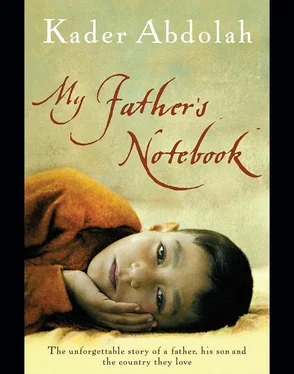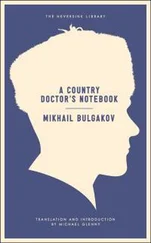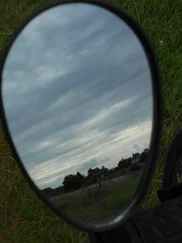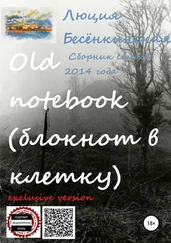I switched on the projector. First there were some words in English, then suddenly a young man. My father didn’t react, just sat quietly and watched. Gradually a quarter moon appeared, then a half moon and finally a full moon. He turned around, looking for me behind the projector.
This wasn’t the moon of Isfahan, but the moon of the United States. An inaccessible moon in a dark blue sky. After that the screen filled with a picture of Apollo 11 .
• • •
Was my father able to make the connection between the moon and the spacecraft?
A few minutes later Apollo 11 landed, and for the first time man set foot on the moon. I turned off the projector and the moon vanished. My father sat in his chair with his hands on his thighs, almost as if he were praying. I didn’t switch on the light, but let him sit in the darkness for a while. I looked at my aging father. All I could see of him was his silhouette and the moonlit glow of his grey hair.
Since Aga Akbar wrote nothing about
an important period in Iran’s history,
I have to get that information
from another source.

Yesterday I took a quick look at the first part of this book. That’s when I noticed that an important period in the political life of my country was missing.
How could Aga Akbar write about an event if he didn’t even know it had taken place?
I’d prefer not to discuss politics in this book, but sometimes it can’t be helped. I have to include the highlights, for the simple reason that the most important changes in Akbar’s life were the result of radical changes in the country’s political agenda.
My father’s move to the city, for example, was prompted by a major shift in Iranian politics: the CIA-backed coup that restored the young shah to the throne.
I had to say something about Mossadegh, but where would I find the necessary historical facts?
Though the university library undoubtedly had enough material, I didn’t want an overly historical approach that would make me stray too far from my father’s notebook. I wanted to sketch a clear portrait of Mossadegh, in a few simple lines. But how could I do that?
Then it occurred to me to phone Igor.
“Good morning, Igor. It’s Ishmael.”
“Good morning, Ishmael. What can I do for you so early in the morning?”
“Early? It’s not that early. You usually get up at six-thirty. Don’t tell me you’re still in bed?”
“Today I am, for a change. I don’t feel like getting up. Chalk it up to old age. That means no newspapers, no pens and no writing pads for me today. So, tell me, what can I do for you?”
“Nothing much. Just one question, which you don’t need to answer right away. I’ll drop by later on. I’d like to know something about Mossadegh.”
“Mossadagh? Refresh my memory … where or who is Mossadagh?”
“No, Mossad egh . You must have come across his name be-fore — the prime minister of Iran after the fall of Reza Khan Pahlavi …”
Igor, a former journalist, is a friend of mine. He used to live in Amsterdam, in an old house on a canal. It was so full of books and records that he had no room for more, so when he retired, he decided to sell his small house and move to the peace and quiet of the polder.
The first time I met him was on the day he moved. It was hot and I was out running. Opposite the dyke, just past the new cemetery, was a beautiful house with a lovely view of the sea. It had been empty for a while, but now there was a moving van parked outside. An old man in a hat was pointing at dozens of book boxes and admonishing the movers. “Gently, please. Be careful … those are my files!”
Suddenly he began to shout, “Oh, God, they’re ruining my books!”
I stopped and watched for a while. Fascinating, an old man in a hat with so many boxes of books.
“What are you looking at?” he asked me. “Help me! I’ve got to let my cats out.”
I helped him carry a huge box containing seven miaowing cats into the house. We’ve been friends ever since.
Igor lives alone with his seven cats. For the last fifty years he’s spent every morning cutting “important” articles out of the newspaper — with the same old scissors — and filing them in his archives, which consist of hundreds of files.
I was certain he had a file on Mossadegh. The question was whether I could find it.
I went over to his house. As usual, he didn’t come down to open the front door. Instead, he stuck his head out of the window to see who was there, then tugged on a rope that ran from the top of the stairs to the door.
“You could buy yourself an electronic door opener, you know,” I called up to him. “It beats having to use a rope.” I say that every time I come for a visit.
“Phooey! Come on up, young man!”
The moment I walked in, seven cats started crawling up my arms and legs.
“Are you sick, Igor? Were you really in bed or—”
“Anyone who’s got out of bed every morning at six-thirty for the past fifty years also gets up every morning at six-thirty to die. Come in, I’m not sick and I’m not in bed, either. I’m just old, that’s all. But, uh … you wanted to know something about Mossadegh. Why Mossadegh, all of a sudden?”
I was about to explain why I needed the information, but as usual he went on talking. Besides, I hadn’t told him about the notebook. I knew I’d have to tell him some day, but I didn’t yet dare.
“You know,” he said, “I became addicted to newspapers at a very young age. When I was about ten, I read about a statesman in your country who wept when he was forced to resign. You probably know your history better than I do, but what I do know is that he wanted to nationalise the Anglo-Iranian Oil Company, which, by the way, seemed to me a very sensible thing to do.
“Help yourself to some coffee, my boy. I’ve put out a nice cup for you, one that comes from the Middle East. I bought it at a flea market. No, wait, at a rummage sale in Amsterdam. Anyway, the coffee tastes better in that cup.
“That man, that Mossadegh … I don’t know all that much about him. I have a file, though I’m not sure where it is. The shah wanted to get rid of him, I think, and threw him in jail. I don’t know if Mossadegh always wept in public, or if that was the only time. We didn’t have television in those days, but movie theatres used to show a newsreel before the movie began. Mossadegh’s tears struck me as a breath of fresh air. At last, a statesman who showed his emotions in public.
“In the post-war years the Netherlands had a greatly respected prime minister by the name of Willem Drees. Still, you never saw him laugh, much less cry. He might have shed an occasional tear in the privacy of his own home, but the general public didn’t know that. Dutch men aren’t supposed to show their emotions, they’re supposed to suppress their tears.
“What did I tell you? The coffee does taste better in that cup! Have a biscuit, the biscuit tin’s over there, by the … oh, I forgot, I hid it from the cats. They like to bat it around, and the biscuits get broken. I might have stuck it behind those files …
“It’s OK to cry at a funeral, that’s acceptable. As for me, I cry whenever I feel like it. Come to think of it, I don’t know whether I got that from my mother or from Mossadegh … Anyway, the shah didn’t have Mossadegh killed. Wasn’t that nice of him? I had a pretty low opinion of the shah in those days, because he was a friend of our prince Bernhard. You know who Prince Bernhard is, don’t you? The husband of our former Queen Juliana and the father of our present Queen Beatrix. He’s known for keeping bad company. My analyses are often based on emotions, so the way I looked at it, the shah was bad and Mossadegh was good. Now, where’s that biscuit tin?”
Читать дальше













